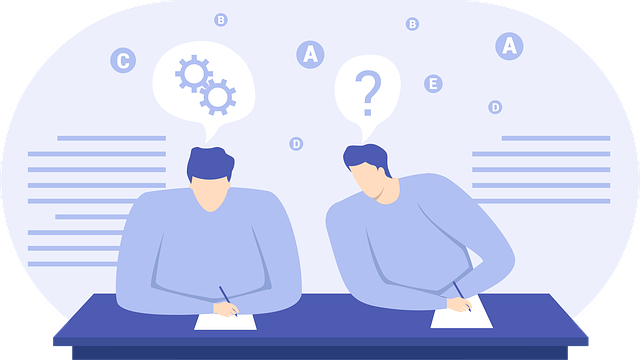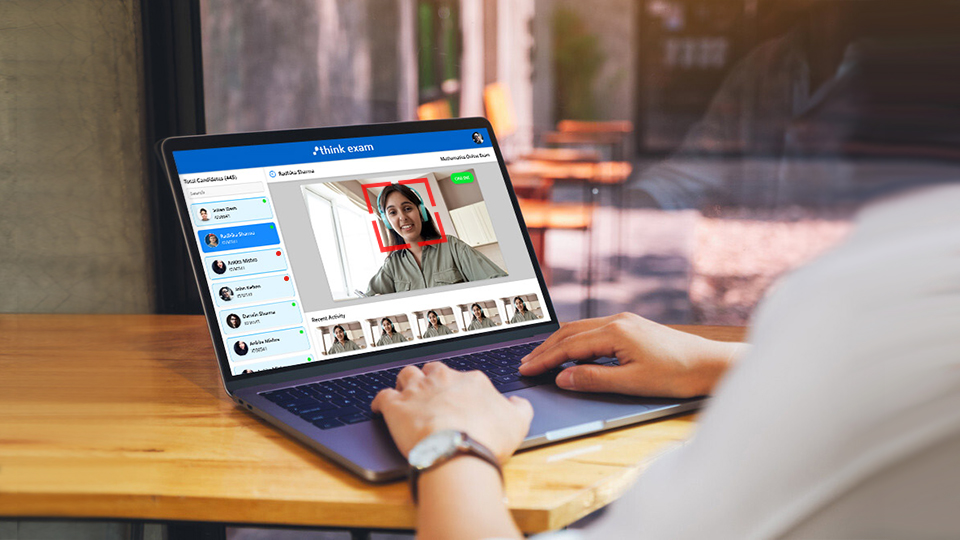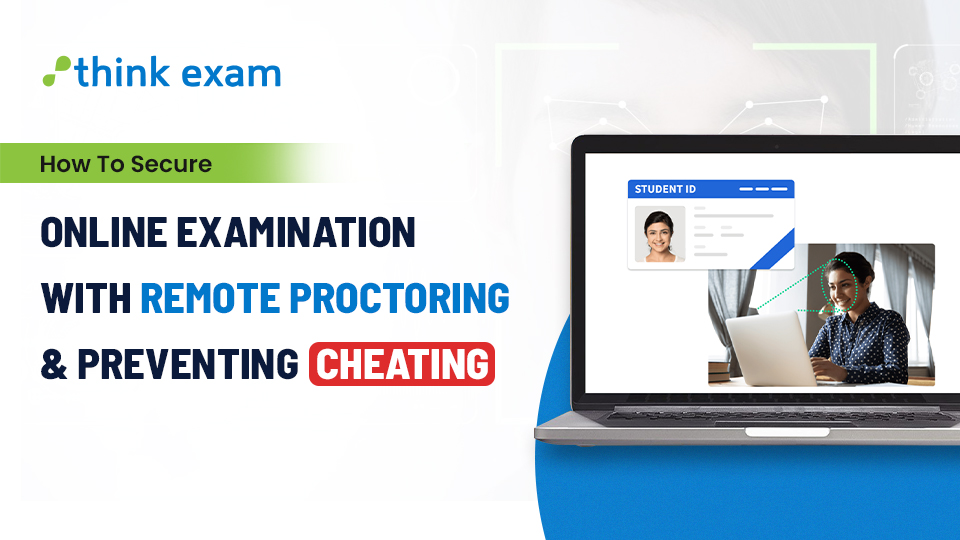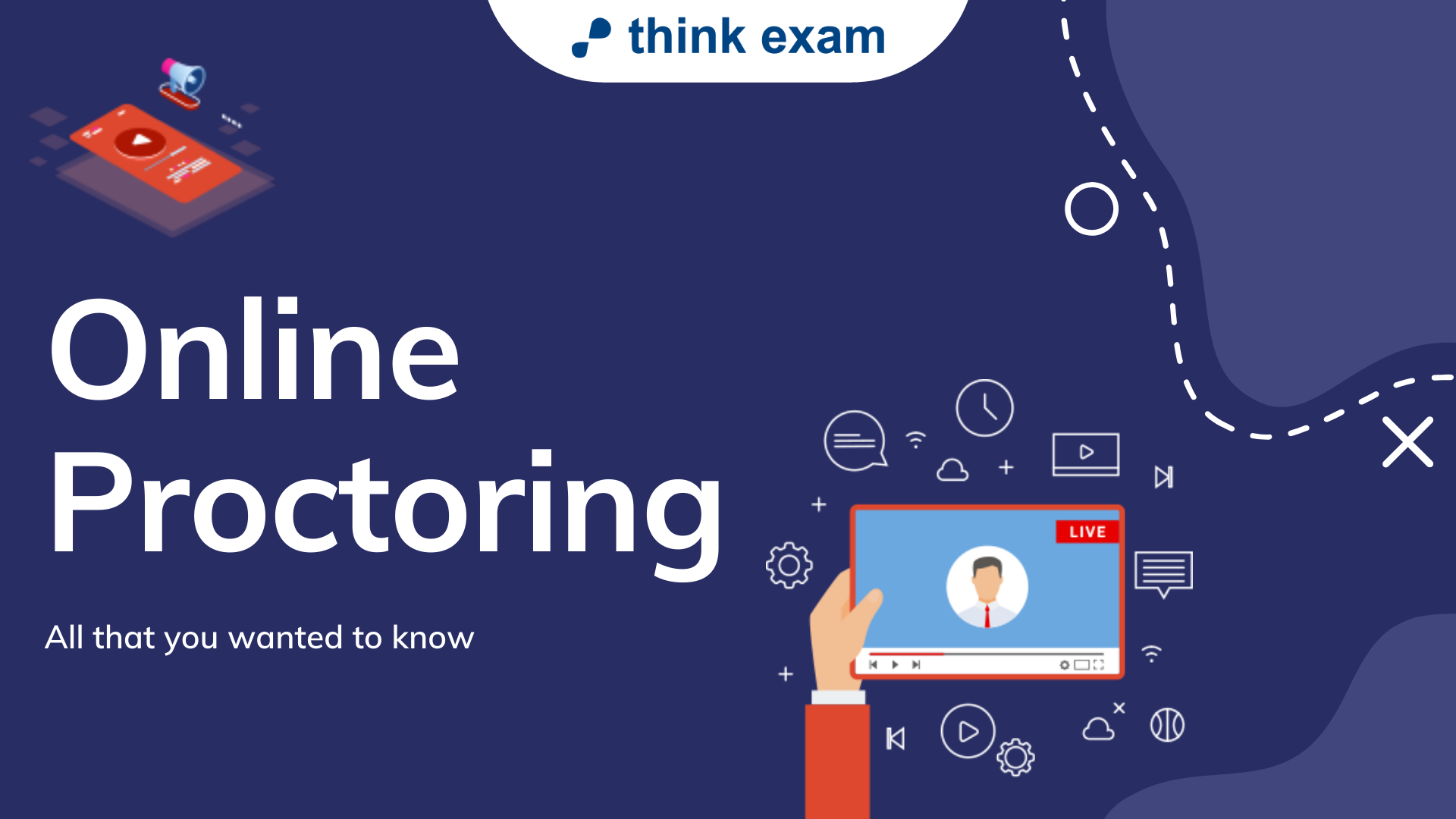A proctor is a person who takes care of the examination. In today’s examination environment, A proctor substantiates a student’s identity by checking the photo ID card and confirming the candidate’s authenticity. The primary role of a proctor is to monitor the test and check whether the student is not cheating during the exam. Before starting the exam, he should explain the guidelines to the students and ask them to maintain the fairness of the exam. The authenticity of the exam is crucial when it comes to online exams. No one is physically there to manage the examination. Hence, it is difficult to evaluate whether the candidate is attempting the exam sincerely or not. Online exams need greater accountability when it comes to evaluating the candidates. If a student attending an online exam, it is difficult for the proctor to be presented at the physical location, this is why remote-proctoring is playing an important role in it. Online proctoring implies remote invigilation or supervision by utilizing an online exam software. This is done to enhance accountability and certify the credibility and authenticity of online examinations.
What do you need in online remote proctoring?
In the remote proctored exam, you need a computer or smartphone and high-speed internet. With this, authorities can conduct online exams at any location. For remotely proctored exams, the examination authorities can take the help of an online exam platform that will track the activity of the candidate. The candidate should have a computer screen, webcam, and microphone. Every detail is recorded and AI evaluates the activity of the candidate.
The remote proctoring software offers ease to the proctor as it helps in maintaining the integrity of the exam.
Types of Proctoring
Apart from human proctoring, there are other kinds of proctoring which consist of :
- Live Proctoring
- Recorded Proctoring
- Automated Proctoring
- Live Proctoring: In this kind of online proctoring, the candidate is monitored with audio-video and screen sharing in real-time. The proctor needs to be presented at the location all the time and if the candidate is found cheating, he can take necessary actions.
- Recorded Proctoring: In this kind of proctoring, human intervention is not required. It is completely automated and recorded in real-time. The exam session is recorded so that the proctor can review the recorded sessions.
- Advanced Automated Proctoring: This kind of proctoring is AI-enabled and automated. It helps in conducting exams without any need for a human proctor. There are negligible chances for error and AI can detect the chances of unfair practice with complete accuracy. It is a most advanced form of remote proctoring. This proctoring is AI-based for detecting any kind of malpractice.
What makes it crucial?
Here are the few features of remote proctoring which make it indispensable that are as follows :
- Pre-authentication; It is a primary step, before initiating the exam. The candidate has to validate himself or herself with the help of an identity card, OTP, or biometrics. Once the step is cleared, and the candidate register successfully, he or she is liable to give the exam. It also consists of recognizing facial features by taking pictures and identifying proof. It ensures that the candidate is genuine.
- Secure Browser Mode: A secure browser feature detects suspicious activity or ends the test if the candidate is browsing from the test window. It blacklists the screen if the candidate is found in any suspicious activity.
- Generation of Report; It is for both candidate and the proctor. Both proctor and candidate get the report which consists of the candidate’s performance. It comprises percentile, percentage, and sectional summary.
How do students cheat during online exams?
Content leakage is a big concern in the online examination system. If the fairness of the exam is compromised, it would reflect the accuracy of the exam and reflect the inability. Now students have found an innovative solution for cheating during exams. Hence, they are taking the advantage of the technology, here are a few ways through which candidates cheat during the exam;
- Screen sharing to another computer: It does not take much time for the candidates to share the screen. In the online exam, they ask their friend to log in to another computer and provide answers to them. Else, they use third-party software such as Team Viewer which takes the control of the paper.
- Utilizing advanced electronic devices: High-tech devices are the secret agents that candidates use during the online exam. Students are using microphones, smartwatches, or augmented reality glasses to help them during the online exam. Sometimes webcams are not effective during the online exam as gadget appears indetectable.
- Keeping notes on a smartphone; Students utilize smartphones for keeping exam-related notes, for example, definitions and formulas. Also, mobile education applications are helping in solving their examination problems.
- Fake Identity for third-party assistance; A proctor can validate the students during the exam. However, it is difficult to confirm that the right candidate is giving the online exam. If the exam is not proctored, students tend to take the help of impersonation so that they can show fake identities and validate
Tips to minimize cheating during the online exam

The common solution for minimizing cheating during the exam is to use an online proctoring service. It is designed to take online tests with the automated proctoring feature. However, there may be some complexity associated with this system. Many schools and colleges are using this alternative for managing online exams. To protect the integrity and maintain the authenticity of the exam, there are numerous ways to prevent cheating during the exams that are as follows;
- Detect electronic devices with proctored software; Students might access one or more devices during the exam. It is important to detect if the student is trying to use any device. Online proctoring can identify the device during the exam. It restricts students to use mobile or any other device.
- Taking Practice tests to remove student anxiety: Many candidates feel anxious before the exams. It is crucial to understand what makes students anxious during the exam. Practice tests and live proctoring help a candidate to support during the exam.
- Software for finding leak questions; Test banks and homework help sites are simple to find and the internet is flooded with many answers. The objective is to find and take control of the question bank. Online proctoring software finds leaked questions on the internet.
- Detects voice and sound; Candidates nowadays are taking unfair advantage of the voice detection software which can listen to specific keywords. Remote proctoring software detects voice and sound in the room and sends an alert in the online exam session.
- Utilizing browser lock: Secure browser feature in online proctoring software prevents students to cheat during the online exam. It restricts access to other websites and disables shortcuts.
- AI proctoring software or human proctor: Online proctoring software comprises AI-based proctoring that protects the integrity of the exam. The AI observes the candidate during the exam. This would help in delivering a secure examination.
- Demonstrate clear instructions: Proctor should define clear instructions during the online proctored exam. It should tell at what time the candidate can start the exam,
- Round-the-clock support: Students are likely to cheat during the exam when they are tired. With remote proctoring software, candidates can give exams anytime. They can give the test when they are confident.
It is proven that with remote proctoring software there are negligible chances of cheating in the high stake online exam. Organizers should opt for the proper strategy and leverage inheritance features of online proctoring software to eliminate the chances of cheating during the exam. For instance, instead of having direct questions which can be searched easily on the internet, Analysis or researched-based questions can help in eliminating the chances of cheating. Utilizing the various type of questions and open-ended questions can enhance the understanding of the course material. In conclusion, lack of supervision tends students to cheat. Identifying the right solution is crucial to eliminating the chances of cheating and maintaining the integrity of the exam.
Learn More about Remote Proctoring Technology
- Think Exam Remote Proctoring Software: Know all about its processing from start to end!
- How Artificial Intelligence is used in Online Proctoring Examinations?
- What is a Remote Proctoring Process? Can online proctoring detect screen Sharing?
- How does Online Proctoring Software work? How to appear in a Remote Proctored Exam?




